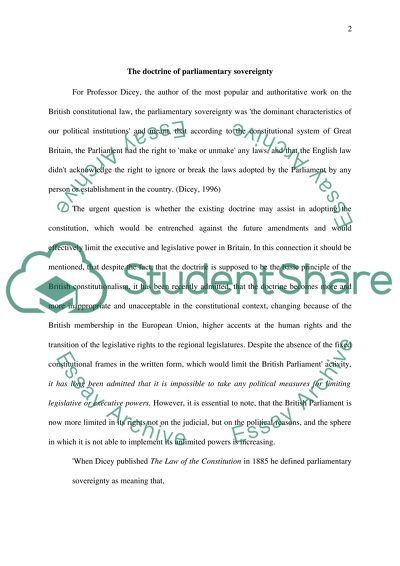Cite this document
(“The doctrine of parliamentary sovereignty Essay”, n.d.)
Retrieved from https://studentshare.org/politics/1518212-the-doctrine-of-parliamentary-sovereignty
Retrieved from https://studentshare.org/politics/1518212-the-doctrine-of-parliamentary-sovereignty
(The Doctrine of Parliamentary Sovereignty Essay)
https://studentshare.org/politics/1518212-the-doctrine-of-parliamentary-sovereignty.
https://studentshare.org/politics/1518212-the-doctrine-of-parliamentary-sovereignty.
“The Doctrine of Parliamentary Sovereignty Essay”, n.d. https://studentshare.org/politics/1518212-the-doctrine-of-parliamentary-sovereignty.


